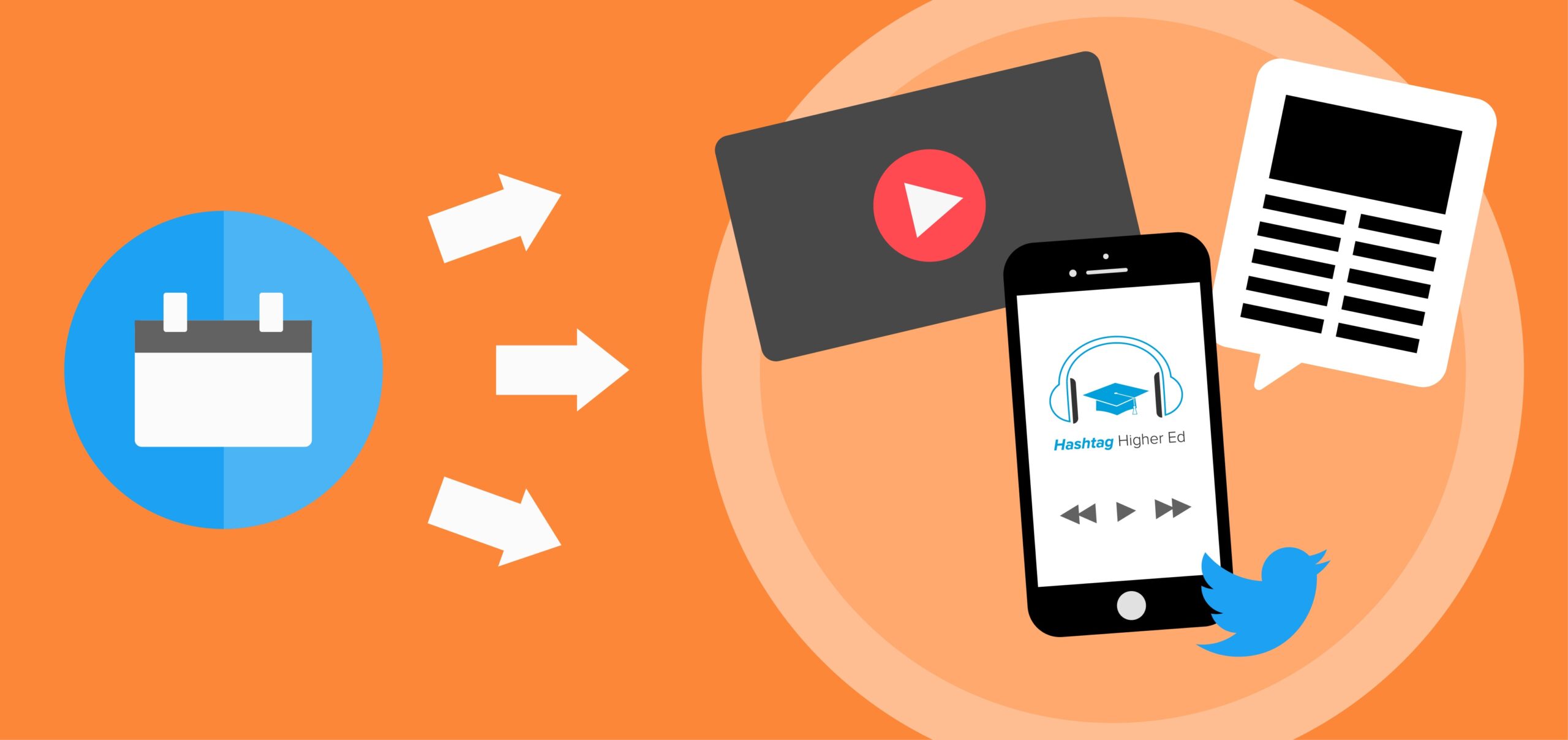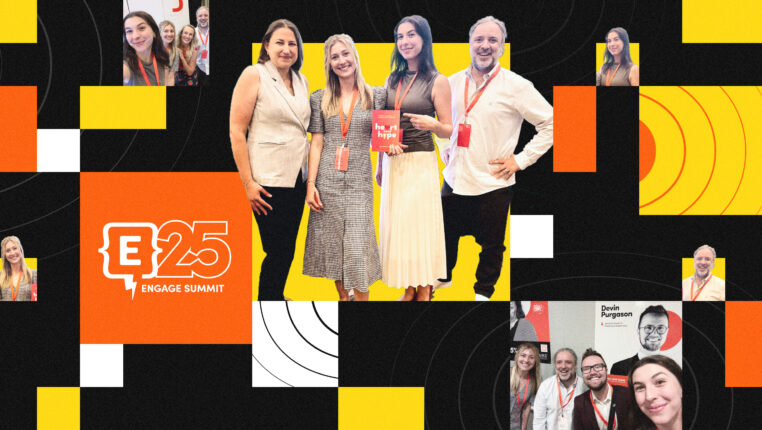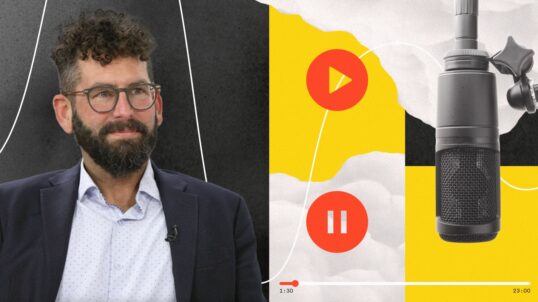For marketing teams large and small, content repurposing has become a major topic of interest. Marketing professionals today are facing a fragmented and crowded media landscape. Furthermore, many marketers are tasked with reaching distracted audiences with fewer resources – personnel and financial – than they’d prefer. In HubSpot’s 2017 State of Inbound report, marketers listed a lack of resources, both in regards to time and talent, among their main marketing challenges. And in our own State of Digital Marketing in Higher Education report, budget and time challenges were also well represented.
As a result, many marketers are turning to content repurposing, transforming one, often larger, piece of content into several, smaller pieces of content published across a variety of platforms to reach a wider audience. Content repurposing can be a content marketer’s best friend. Repurposing content can boost the SEO impact of a particular piece, help reach new audiences, extend the impact of your brand messaging, and help even the smallest marketing teams publish more consistently.
The eCity marketing team recently used content repurposing to spread the word about a panel discussion we hosted to celebrate Philly Tech Week. Here’s how we turned that single event into six different pieces of content.
The Source: Digital’s New Role in Education Marketing
Any good content repurposing strategy requires a sturdy original source from which to adapt, extend, and promote. For eCity, this source was Digital’s New Role in Education Marketing and Outreach, a panel discussion put on as part of Philly Tech Week. This event featured four marketing professionals from area educational institutions discussing the strategies and tactics they used to reach their target audiences, generate tangible leads, convert applicants into enrolled students, and delight current students and alumni.
Content Piece 1: An Introductory Blog Post
Our first smaller piece of content was published before the event even took place, but was borne out of the event just the same. As part of our event preparation, our marketing team put together an introduction for the event and a series of questions for the panelists. Then, from that information, we drafted a blog post for our website, complete with a call-to-action to register for the event, and shared it across social media.
Content Piece 2: Event Video
As with any event, not everyone who was interested in or registered for the event could attend. With that in mind, we recorded the event, edited the video for clarity and time, and released it on our YouTube channel. We then emailed all event registrants and attendees a link to the video and our event recap blog post.
After considering the structure and length of the event, we decided to publish the video ungated, or without asking interested individuals to fill out a contact form to view it. However, if you’re using a special event or product training as your original content source, and that event or training was exclusive, either due to ticket price or membership status, consider gating a portion of the content that comes from that event, either via an information form or online payment. Doing so will increase your content lead generation efforts and maintain the exclusivity of your event, ensuring that paid attendees don’t decide to skip your event in the future in lieu of the digital version.
Content Piece 3: Highlight Video
Since this event was almost an hour long, we knew that it was a long shot that our audience, and especially individuals seeing our brand for the first time through this content, would watch the video in its entirety on first glance.
Therefore, as we edited our video event recording, we made it a point to cut out one specifically memorable quote from each panelist, which we then spliced together into a sort of highlight package. Altogether, the highlight video ran less than five minutes long, a runtime that was much more likely to be consumed by our audience.
We embedded the highlight package in our recap blog post and shared it on social media, with the goal of piquing the interest of our audience enough that they would tune in and watch the event in its entirety.
Content Piece 4: Recap Blog Post
Speaking of a recap blog post, we knew our event wouldn’t be complete without a blog post recap. To craft this piece, we had our video from the event transcribed, and then used the transcription to organize panel insights into a set of five categories, which formed the base of our article, “5 Takeaways on Digital’s New Role in Education Marketing and Outreach.”
As previously mentioned, this blog post was an excellent place to embed our video highlight package and link to our full video recording. We also included a link to the blog in our email to registrants who couldn’t attend the event and attendees of the event.
Content Piece 5: Podcast Episode
Next, we transformed our content again, stripping the event recording to an audio only format. We then released that audio as a special bonus episode of our agency podcast, “Hashtag Higher Ed.” Releasing the event as a podcast episode offered multiple benefits, but chief among them was reaching a different audience that may be familiar with our podcast but not the other events and content that our agency produces. Further, our podcast is delivered to subscribers automatically, which means we didn’t have to heavily rely on organic SEO to reach this audience. We were, in essence, already cutting through the clutter via podcast apps and platforms.
Content Piece 6: Social Media Graphics
Finally, in an effort to give micro pieces of content a visually appealing spin, we used Canva, a free design tool, to craft social media images based on panel quotes. We then shared these images across our two main social channels, LinkedIn and Twitter, with links back to the recap blog post, which, if you’ll recall, contained the highlight video from the event.
5 Key Takeaways on Digital’s New Role in Education Marketing and Outreach from #PTW17: https://t.co/mhcHWQpa1q#highered#hemktgpic.twitter.com/sMhE17yMAH
— eCity Interactive (@eCityInteract) May 22, 2017
Extra Credit
All told, we were able to create six different pieces of content, not including specially-designed calls-to-action and RSVP emails, from a single event. Doing so helped us extend our marketing message from the 91 individuals who registered for our panel discussion to several hundred individuals, according to data from HubSpot, Twitter, YouTube, and Soundcloud. I’d call that a content repurposing success.
Interestingly enough, we could have gone even further. We could have turned our transcription from the event into the foundation for an eBook, or packaged our panel insights into a visual slide deck and published it on Slideshare. Additionally, we could have produced an infographic or video animation.
Producing quality content takes time. A 2017 survey by Orbit Media found that twice as many bloggers are now spending 6+ hours on their average blog post than in 2016. That’s why it’s so important that organizations take advantage of events that are already taking place, like special events, guest lectures, or product demos, and extend the reach of those events through content repurposing.
By transforming a larger piece of content into several smaller pieces of content, organizations can boost their SEO, reach new audiences, and consistently publish content, even with a small content marketing team. At eCity, our small team was able to produce six pieces of content across five different marketing platforms. What can content repurposing do for you?




